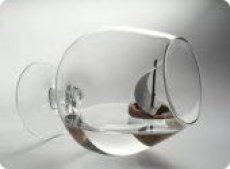Success on the personal front makes you forget about alcohol
Last reviewed: 16.10.2021

All iLive content is medically reviewed or fact checked to ensure as much factual accuracy as possible.
We have strict sourcing guidelines and only link to reputable media sites, academic research institutions and, whenever possible, medically peer reviewed studies. Note that the numbers in parentheses ([1], [2], etc.) are clickable links to these studies.
If you feel that any of our content is inaccurate, out-of-date, or otherwise questionable, please select it and press Ctrl + Enter.

Luck or failure in their personal life determines the behavior of the most diverse animals: if the female is rejected by the female, the reinforcement system in his brain will force the male to find solace in a portion of alcohol - and there is no need to indicate an obvious similarity with human behavior.
The lack of sex pushes the male fruit flies to drunkenness. This conclusion was made by researchers from the University of California in San Francisco (USA), having studied the behavior of males who were lucky and unlucky in love. The results of their experiments scientists published in the journal Science. The aim of the work was to find out whether social interaction can influence the subsequent behavior of an individual. As for the person, then the answer is obvious, but, apparently, the influence of social contact on behavior is realized through rather ancient molecular mechanisms that even insects have.
In the brain there is a so-called reinforcement system: it is to it that we owe a sense of pleasure as a result of winnings, rewards, etc. It is known that alcohol activates this system, causing a sense of satisfaction. On the other hand, successful social contact, when we enjoy communication, uses the same system. This mechanism is very universal, it is in man and flies. Scientists have decided to find out whether various incentives can overlap in this system, whether failure in one can be compensated by a gain in the other. The experiment, in fact, is pretty simple. The male Drosophila was divided into two groups. One was placed in the ready for mating females; The males were several times smaller than the females, so none of the cavaliers remained deprived. The other group was placed face to face with females that had recently mated; such flies have rejected all the courtship of those eager for the intimacy of the males.
After four days of intercourse, males were transplanted into a cell where they had two capillaries with nutrient fluid, but in one of them, ethanol was mixed with this liquid. It turned out that sexually satisfied males are somewhat disgusted with ethanol - unlike rejected lovers who were "put to the bottle" four times as often as their happier friends.
However, the researchers did not confine themselves to a simple statement of this fact and tried to determine the molecular mechanism behind such behavior. It turned out that the whole thing in the neuropeptide F (NPF), about which it was already known, that it mediates alcohol dependence in flies. In rejected males, the level of this neuropeptide in the brain was reduced. If mating males artificially lowered the level of receptors to NPF, then they searched for alcohol, despite successes in their personal lives. On the other hand, an elevated level of NPF-receptors relieved males-losers from craving for binge drinking.
Obviously, the neuropeptide F is a key player in the brain reinforcement system, combining different impulses and influencing the further behavior of the individual. Of course, this is the beginning of the work, and scientists are only to find out exactly how the NPF regulates the level of craving for alcohol and how sexual satisfaction affects its level in the brain.
In the brain, a person has a similar neuropeptide Y, reminiscent of the properties of NPF. Under stress, the level of NPY decreases, its low level stimulates alcohol dependence in rats, and it is believed that some mutations in the NPY gene are associated with alcoholism in humans. How to know, maybe further research in this area will relieve men from the need to suppress the pain of a broken heart with the help of strong drinks.
 [1]
[1]
